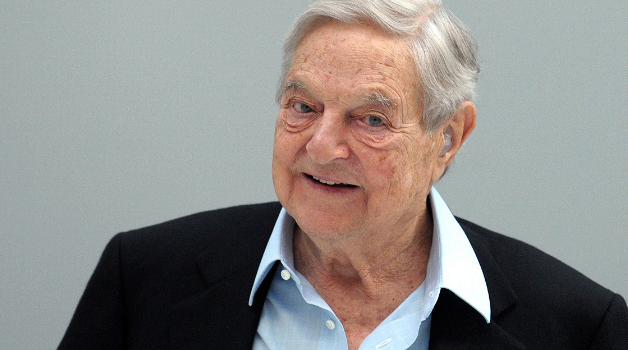In early November, billionaire George Soros placed a phone call to the German Council on Foreign Relations (DGAP) director Daniela Schwarzer, asking her to intervene with German Chancellor Angela Merkel to prevent Hungary’s Commissioner-designate from receiving the new European Commission’s enlargement and neighbourhood portfolio, Hungarian daily Magyar Nemzet reports, citing reliable national security sources.
During the phone conversation, the influential stock exchange speculator argued that allowing the Hungarian government to delegate a commissioner to the post in question would fatally undermine the external credibility of the European integration. Soros bolstered his argument by stressing that Hungary’s Prime Minister Viktor Orban maintained too close ties with Russia and Turkey, which could pose a risk to the EU, the V4 news agency reports.
Schwarzer wasn’t caught off guard by the phone call because she personally knows Soros. The two conduct regular phone conversations every few months as the billionaire’s Open Society Foundations network is one of DGAP’s sponsors. However, she was surprised by Soros’s request and tried to explain that “things don’t quite work like this”. She told Soros that she could make a phone call to the Chancellor, but ruled out the possibility of giving her such direct political advice. George Soros had a hard time accepting the refusal and kept trying to persuade Schwarzer, citing the gravity of the case. According to sources close to the paper, Schwarzer decided not to intervene and Hungarian candidate Oliver Varhelyi was on track to become enlargement commissioner.
This is not the first time that George Soros had meddled in European Union affairs. The Hungarian government originally nominated Hungary’s former Justice Minister Laszlo Trocsanyi to the new Commission headed by Ursula von der Leyen, but – due to EU procedures launched against Hungary, partly based on the accusations by Soros’s network – the European Parliament’s justice committee (LIBE) rejected his appointment. Ahead of his hearing Trocsanyi’s potential appointment had been criticised by several left-wing and liberal MEPs and the Helsinki Committee, an NGO financed by Soros’s Open Society Foundations.
Soros’s power is largely rooted in his network of foundations built throughout the decades. Organisations directly linked to, or financed by him first appeared in Eastern Europe under the guise of charity or rights advocacy around the fall of socialism, but they have also established bridgeheads in the economic and political centres of the world. The whistleblower DCLeaks portal shed light on the billionaire’s influence in 2016 by publishing documents from the internal database of the Open Society Foundations’ European centre.
The document titled Reliable Allies in the European Parliament (2010-2019) lists 226 of the 751 MEPs as trustworthy allies of the foundation. This means Soros’s network had more allies during the previous parliamentary cycle than the number of MEPs in the EP’s largest People’s Party group (215 lawmakers). The majority of the MEPs on the list also participated in the initiation of the so-called Article 7 procedure against Hungary.
OSF’s list included names such as Martin Schulz, the European Parliament’s former president and the Social Democrats’ strongman; former European Commissioner for Economic and Monetary Affairs Olli Rehn; former Social Democratic group leader Gianni Pittella; ex EP Vice-President Alexander Lambsdorff and Elmar Brok, Sophie int Veld, Ulrike Lunacek and Guy Verhofstadt.
Meanwhile it has also emerged that the billionaire’s foundation in Brussels has several lobbyists, all equipped with EP accreditations, who meet with members of Jean-Claude Junker’s European Commission on a near weekly basis. Junker himself described Soros as a friend, whom he has met on multiple occassions during his mandate, just like other commissioners. The billionaire maintains a close relationship with leaders such as French President Emmanuel Macron and Finland’s Prime Minister Jyrki Katainen, a vocal critic of the Hungarian government.
During his regular radio interview last Friday , Hungarian Prime Minister Viktor Orban confirmed that Soros had personally intervened to try and prevent Oliver Varhelyi’s appointment.




Comments are closed for this post.